Vulnerable Public

How can climate finance be made more equitable and accessible to vulnerable communities ?
Climate finance plays a crucial role in addressing the challenges posed by climate change. However, ensuring that this finance is equitable and accessible to vulnerable communities requires a multi-faceted approach. Here are some strategies that can be employed: 1. Prioritize Vulnerable Communities: Identify and target vulnerable communities, allocate adequate resources, develop targeted programs and initiatives that address their needs. 2. Enhance Capacity Building: Provide training and education on climate change mitigation and adaptation strategies tailored to the needs of vulnerable communities, build institutional capacity, strengthen partnerships between governments, civil society organizations, and community groups to ensure coordinated efforts in capacity building. 3. Promote Participatory Approaches: Encourage community participation in the design, implementation, and monitoring of climate finance projects, enhance transparency and accountability, hold stakeholders accountable for meeting agreed-upon targets and milestones related to climate finance distribution and utilization. 4. Leverage Technology and Innovation: Utilize digital platforms where vulnerable communities can access information about available climate finance opportunities and apply for funding, use mobile technology to reach remote areas and provide real-time updates on project progress and outcomes, encourage innovative solutions that address the unique challenges faced by vulnerable communities, support research and development initiatives focused on creating new tools and methodologies for improving climate finance accessibility and equity. 5. Collaborate with Stakeholders: Engage with private sector entities to leverage their resources and expertise in delivering climate finance solutions to vulnerable communities, establish public-private partnerships aimed at increasing investment in sustainable projects benefiting these communities, partner with international organizations like the World Bank or UN agencies to secure additional funding and technical support for climate finance initiatives targeting vulnerable communities, harness the expertise of international NGOs working in similar fields to share best practices and lessons learned from successful projects globally.

What role do governments play in addressing the climate emergency ?
Governments play a crucial role in addressing the climate emergency through legislation and policy making, investment in research and development, public awareness and education, international cooperation, and protection of vulnerable communities. These actions include setting emission reduction targets, promoting renewable energy sources, funding clean energy technologies, raising public awareness, coordinating global efforts, and supporting vulnerable populations affected by climate change.
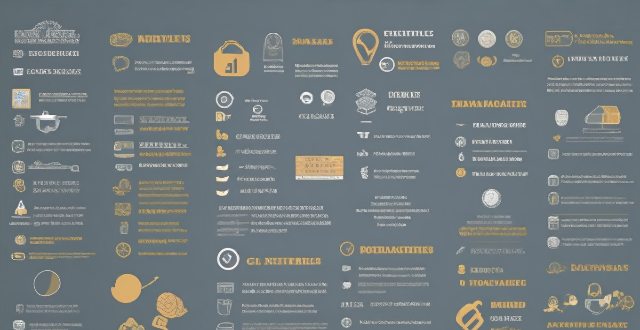
How do climate change negotiations address the needs of vulnerable communities ?
Climate change disproportionately affects vulnerable communities, such as those living in poverty or low-lying coastal areas. It is crucial for climate change negotiations to address their needs and ensure that they are not left behind in the fight against climate change. This involves recognizing the impact of climate change on these communities, incorporating vulnerability into climate change negotiations, providing access to information and participation in decision-making processes, offering financial and technical support for adaptation measures, ensuring just transitions away from high-emission industries, and promoting resilience and sustainable development. By doing so, vulnerable communities can become more resilient to future climate change impacts and contribute to a more equitable and sustainable world.

How can we involve vulnerable communities in climate action planning and implementation ?
Involving vulnerable communities in climate action planning and implementation is crucial for creating effective, equitable, and sustainable solutions to the climate crisis. Here's how we can ensure their involvement: 1. Identify and engage with vulnerable communities through community meetings, workshops, and consultations. 2. Build trust and capacity within these communities by involving them in decision-making processes, providing regular updates on progress, demonstrating transparency and accountability, and offering training programs on climate change science, policy advocacy, and project management skills. 3. Collaborate with vulnerable communities to develop solutions that address their specific needs and priorities while being culturally sensitive and respectful of local traditions and practices. 4. Regularly monitor progress towards climate action goals and evaluate the impact of initiatives on vulnerable communities by collecting data on changes in environmental conditions, economic opportunities, and social wellbeing, as well as seeking feedback from community members.

How do climate and environmental policies address the needs of vulnerable communities and ecosystems ?
Climate and environmental policies are essential for addressing the needs of vulnerable communities and ecosystems. These policies aim to reduce emissions and pollution, protect natural resources, build resilience and adaptation capacity, and promote environmental justice. By implementing measures such as promoting renewable energy sources, establishing protected areas, providing funding for climate adaptation projects, and ensuring equitable access to clean energy technologies, these policies can significantly improve the health and quality of life for vulnerable communities while also contributing to global efforts to combat climate change.

What role does climate justice play in addressing the impacts of climate change on vulnerable communities ?
Climate justice is crucial for addressing the disproportionate impacts of climate change on vulnerable communities. It emphasizes equity, fairness, sustainability, participation, and transparency in environmental policies and practices. Vulnerable communities face unique challenges due to limited resources and dependence on natural resources. Key principles of climate justice include equity, fairness, sustainability, participation, and transparency. Strategies for achieving climate justice involve inclusive policy making, capacity building, access to finance, technology transfer, information dissemination, strengthening institutions, and promoting resilience. Collaborative efforts at various levels can help achieve a more equitable and resilient world for all.

How can we balance public health concerns with economic recovery during pandemic management ?
Balancing public health concerns with economic recovery during pandemic management involves implementing widespread testing, efficient contact tracing programs, vaccination campaigns, and clear public health messaging. It also requires targeted restrictions, financial aid, adaptive workplaces, infrastructure investments, and building consumer confidence. Long-term planning includes strengthening health systems, fostering economic diversification, investing in research and innovation, and creating emergency funds. Collaborative governance through intersectoral collaboration, global cooperation, and stakeholder engagement is essential for navigating the dual challenge of protecting public health while fostering economic stability and growth during a pandemic.

What is the difference between private and public Wi-Fi ?
Private and public Wi-Fi networks differ in terms of security, accessibility, and management. Understanding the distinctions between these two types of networks is crucial for ensuring that your internet connection is secure and optimized for your specific needs. Private Wi-Fi networks are typically password-protected, ensuring that only authorized users can connect, adding a layer of security. They offer more control over network settings and user management, allowing administrators to monitor connected devices and create network usage policies. Private networks are ideal for activities requiring secure connections, such as online banking or accessing sensitive information. Public Wi-Fi networks, on the other hand, are open or use a simpler connection method, often requiring no password or providing a generic one for all users. This ease of access makes them vulnerable to security threats such as data interception or unauthorized access to connected devices. Public networks lack robust management features and may not provide the same level of control over network settings or user activity. They are better suited for general browsing, checking emails, or using social media where the need for secure transactions is minimal. In conclusion, the choice between private and public Wi-Fi depends on your priorities regarding security, accessibility, and intended use. For secure transactions and controlled environments, private Wi-Fi is the preferred option. Conversely, public Wi-Fi offers convenience and widespread availability but requires more caution regarding security and potentially lower performance in high-traffic areas. Always consider the nature of your online activities and the importance of security when choosing between these two types of networks.

Is it safe to use public Wi-Fi ?
The article discusses the risks associated with using public Wi-Fi, including unsecured networks, man-in-the-middle attacks, and malware distribution. It also provides precautions to take when using public Wi-Fi, such as using a VPN, avoiding accessing sensitive information, keeping devices up-to-date, and being wary of fake hotspots. The article concludes that while using public Wi-Fi can be convenient, it's important to take appropriate precautions to protect personal information.

How can we ensure that climate change adaptation measures are equitable and just ?
The topic of ensuring equitable and just climate change adaptation measures is crucial for protecting vulnerable communities, avoiding inequality amplification, and promoting sustainability. Key principles include prioritizing the most vulnerable, transparency and public participation, equitable resource allocation, legislative and policy support, capacity building and education, and international cooperation. Implementing these principles involves assessment and planning, integration with development goals, and monitoring and evaluation. By following these guidelines, we can ensure that adaptation measures are fair and just for all.

How do celebrities deal with paparazzi and public attention ?
Celebrities deal with paparazzi and public attention in various ways, including hiring security personnel, limiting public appearances, using disguises, maintaining privacy online, and taking legal action.

How do public health policies tackle the issue of obesity through promoting sports and exercise ?
How Public Health Policies Address Obesity by Encouraging Sports and Exercise.

What are the challenges of enforcing social distancing in public spaces ?
The article discusses the challenges faced in enforcing social distancing in public spaces, including lack of awareness, crowded areas, limited resources, resistance from the public, and cultural differences. It emphasizes the importance of a multifaceted approach to create safer environments during the pandemic.

What is the role of public participation in shaping climate and environmental law ?
Public participation plays a crucial role in shaping climate and environmental law. It ensures accountability, transparency, legitimacy, and trust in the decision-making process. Public participation also fosters innovation and collaboration in addressing climate and environmental challenges. To be effective, public participation must be accessible, inclusive, relevant, and continuous. By involving the public in the development of climate and environmental laws, decision-makers can create more equitable, responsive, and sustainable policies that benefit both current and future generations.

How does the climate emergency disproportionately affect vulnerable communities ?
The climate emergency disproportionately affects vulnerable communities, including agricultural and coastal populations, indigenous peoples, the elderly, and urban poor. These groups face loss of livelihoods, health risks, food insecurity, displacement, challenges in education and child development, gender inequalities, urban poverty, and mental health impacts. Addressing these issues requires targeted interventions to ensure these communities are not left behind in the global response to climate change.

Is it safe to use public Wi-Fi networks with my iPhone ?
Using public Wi-Fi networks with your iPhone can be convenient, but it also poses security risks such as unsecured networks, malware attacks, and phishing scams. To stay safe, use a VPN, avoid accessing sensitive information on public networks, keep your device up-to-date, enable two-factor authentication, and be wary of fake hotspots.

How can we promote public awareness and participation in water resource management ?
Water resource management is crucial for communities worldwide, and promoting public awareness and involvement is key. Strategies include education campaigns, public participation initiatives, incentives, and collaboration with local government and businesses. These efforts aim to increase knowledge, encourage active participation, and foster conservation and sustainability.
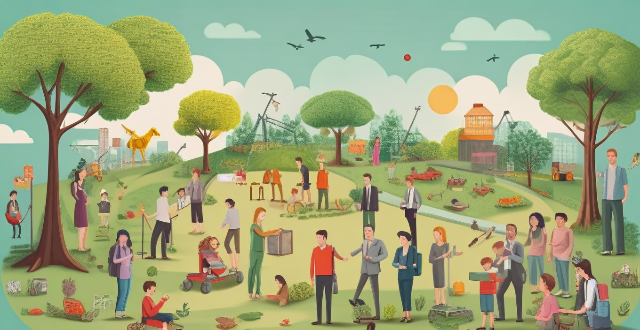
How can we ensure that climate change adaptation and mitigation efforts are inclusive of vulnerable populations ?
Climate change affects everyone unevenly, with vulnerable populations often facing greater risks. To ensure inclusivity in climate adaptation and mitigation, efforts should include conducting needs assessments, integrating rights-based approaches into policies, providing resources and support, building resilience through education and capacity building, promoting equitable infrastructure development, addressing health impacts, fostering inclusive economic opportunities, and ensuring legal protections. By prioritizing these actions, we can move towards a more resilient and equitable world for all.
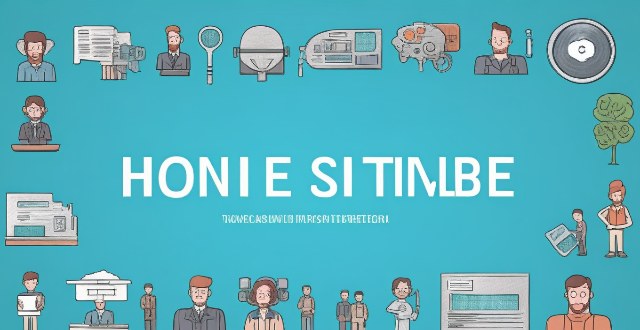
How can we ensure that the benefits of sustainable development reach everyone, including the most vulnerable groups ?
The text discusses how sustainable development can be ensured to reach everyone, including the most vulnerable groups. It suggests a multifaceted approach that involves balancing economic growth, social inclusion, and environmental protection. The strategies include developing inclusive policies, ensuring access to opportunities like education and training, investing in sustainable infrastructure and accessible services, encouraging community engagement and advocacy, and implementing monitoring and accountability measures. By working together across sectors and levels of society, a more equitable and sustainable future can be built for all.

Can public Wi-Fi networks be secure ?
Public Wi-Fi networks are convenient but come with security risks. Potential vulnerabilities include unencrypted data transmission, man-in-the-middle attacks, malware distribution, and snooping. To make public Wi-Fi networks more secure, use a VPN, avoid sensitive activities, keep your device up-to-date, use two-factor authentication, and be wary of fake access points.
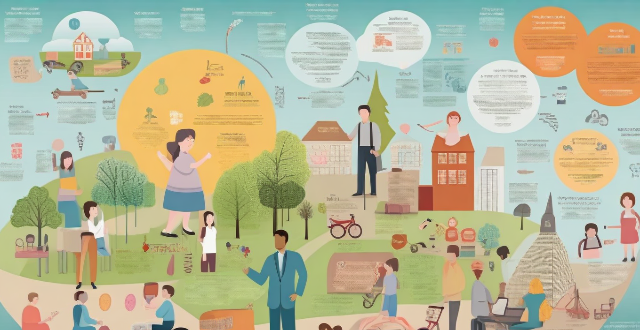
How can we promote public awareness and education about global health issues ?
Promoting public awareness and education about global health issues is crucial for improving the overall well-being of populations worldwide. There are several strategies that can be employed to achieve this goal, including using multiple communication channels, collaborating with influencers and celebrities, conducting public health campaigns, engaging with schools and universities, partnering with NGOs, developing interactive tools and applications, and hosting public seminars and workshops.

What role does public opinion play in determining award winners ?
**Summary:** Public opinion significantly influences award winners, particularly in fields like entertainment and sports where audience approval is crucial. It affects voting processes, reflects current trends, impacts marketing, and raises criticisms about quality vs. popularity. Award organizations strive for a balance that considers public opinion without overshadowing artistic merit and industry standards.
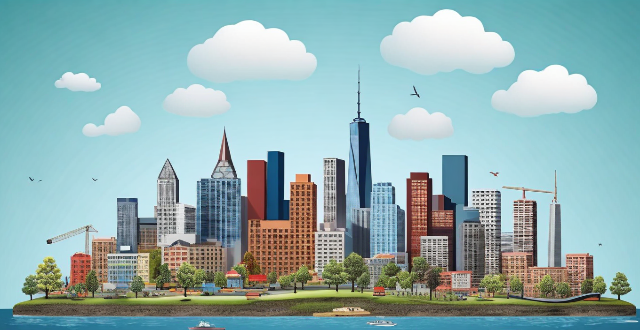
How can we ensure that climate change mitigation efforts do not disproportionately affect vulnerable populations ?
Climate change is a global issue that requires immediate action. However, it is important to ensure that the mitigation efforts do not disproportionately affect vulnerable populations. To achieve this, policymakers should prioritize equity in policymaking, promote sustainable development, encourage community involvement, provide education and training, and establish social safety nets. By taking these steps, we can work towards a more equitable and sustainable future for all.

How does private equity differ from public equity ?
Private equity and public equity are two different types of investment vehicles that offer distinct characteristics, benefits, and risks. Private equity refers to investments in companies that are not publicly traded on stock exchanges, while public equity refers to investments in companies that are publicly traded on stock exchanges. Key differences between private equity and public equity include accessibility, liquidity, regulation, investment horizon, and returns. Private equity investments are typically only available to accredited investors, such as institutional investors, high net worth individuals, and family offices. Public equity investments are more accessible to a wider range of investors, as anyone can buy shares of publicly traded companies on stock exchanges. Private equity investments are generally illiquid, meaning it can be difficult to sell your stake in a company if you need to exit the investment. Public equity investments are highly liquid, as shares of publicly traded companies can be easily bought and sold on stock exchanges. Private equity firms are not subject to the same level of regulation as publicly traded companies. This allows them greater flexibility in managing their investments and making strategic decisions without the scrutiny of public markets. Publicly traded companies are subject to strict regulations and reporting requirements set by regulatory bodies such as the Securities and Exchange Commission (SEC). Private equity investments typically have a longer investment horizon than public equity investments. This is because private equity firms focus on long-term growth and value creation within the companies they invest in. Public equity investments can be held for shorter periods of time, as investors can easily buy and sell shares on stock exchanges based on market conditions and personal financial goals. Private equity investments often aim for higher returns than public equity investments, as they involve higher levels of risk and illiquidity. However, these returns are not guaranteed and depend on the success of the companies being invested in. Public equity investments may offer more stable returns over time, as publicly traded companies tend to be more established and have a proven track record of financial performance. In conclusion, private equity and public equity offer different advantages and disadvantages depending on an investor's goals, risk tolerance, and investment horizon. It is important for investors to carefully consider their investment objectives and risk profile before choosing between private equity and public equity investments.

What role does public participation play in climate policy evaluation ?
Public participation is vital in climate policy evaluation as it ensures accountability, transparency, and diverse perspectives. It allows for the co-creation of solutions and fosters a sense of ownership among citizens. Governments can promote public participation through public consultations, collaborative governance, and digital technologies. Overall, public participation leads to more effective and sustainable climate policies.

How does physical activity impact public health policies ?
The text discusses the importance of physical activity in promoting individual and public health. It outlines how regular exercise can prevent chronic diseases, improve mental health, and aid in weight management. The text then explains how these benefits influence public health policies, including the development of programs promoting physical activity, funding for research, and public awareness campaigns. Overall, it emphasizes the need for governments to promote physical activity through various initiatives, aiming to create a society where being active is a way of life.

What role does government regulation play in ensuring safe levels of radiation exposure for the public ?
Government regulation is essential for ensuring safe radiation exposure levels by setting standards, licensing facilities, conducting inspections, educating the public, investing in research, preparing for emergencies, and collaborating internationally to manage radiation risks effectively.

How do celebrities handle conflicts and disagreements with their friends in the public eye ?
Celebrities face unique challenges when handling public conflicts with friends due to the scrutiny of the media and their fans. They often use strategies such as private resolution, public apologies, mediation, legal action, avoidance, humor, and support from fans and followers to manage these conflicts effectively.

How can we increase public awareness about climate change ?
Climate change is a global issue that requires increased public awareness to mitigate its effects and adapt to its consequences. Ways to raise awareness include integrating climate change education into school curriculums, organizing public workshops and seminars, encouraging news outlets to cover climate change stories more frequently, creating social media campaigns, organizing local events, producing public service announcements, and offering subsidies and incentives for eco-friendly practices. By working together, we can create a more informed and engaged public that is better equipped to tackle the challenges posed by climate change.

What role should public opinion play in climate decision-making ?
The text discusses the importance of public opinion in climate decision-making, emphasizing that it can influence policymakers, shape public discourse, and drive action towards addressing climate change. The author outlines ways to influence public opinion, such as education, advocacy, media, and personal action.